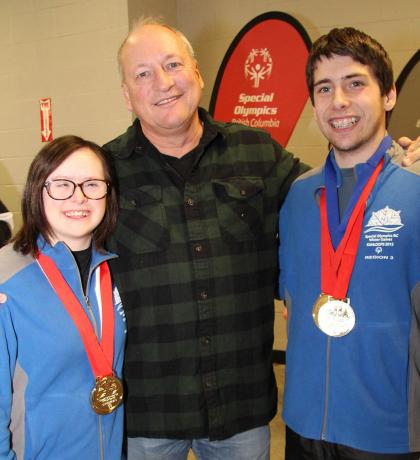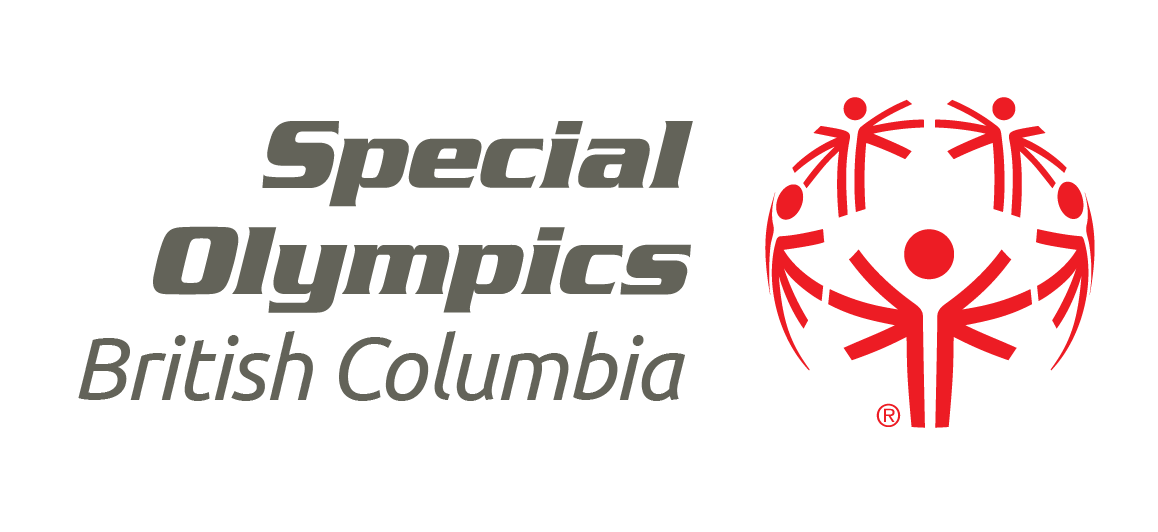
By Jacques Thibault, Special Olympics BC Sport Consultant
Jacques Thibault, an internationally recognized training and speed skating expert with a Master’s degree in science, works with Special Olympics BC athletes and coaches to help empower them to be their very best.
"Practice isn’t the thing you do once you are good. It’s the thing you do that makes you good." - Malcolm Gladwell
The 2019 Special Olympics Winter Games in Greater Vernon are fast approaching. Many athletes have already started their training well before the snow fell on the ground. Snowshoeing athletes used snowshoes on grass and sandy beaches, cross country skiers used roller skis, speed skaters trained on and off-ice, and alpine skiers had off-snow training exercises.
Now with snow soon on the ground, it is time to look at training guidelines to improve basic skills and competition results. This month, I am presenting some training guidelines in four different winter sports.
Cross country skiing - usual practice duration 1.5 to 2.5 hours on snow
a) Basic skill level (where athletes can’t execute minimal technical skiing skills such as double poling and diagonal strides).
At this stage, training on and off snow (on roller skis or skates) will be necessary for Special Olympics athletes’ 20-hour basic skill acquisition. One to three practices per week is recommended to move to an intermediate level.
Wax-less skis are used at this level.
75 per cent of snow practices should be on skill development (slower speed).
25 per cent Warm-up and free classic skiing.
b) Intermediate skill level
A minimum of three sessions per week on snow (or on rollers during summer) is recommended to improve skills to the advanced level.
Athletes are using two pairs of waxed skis (free and classic skis).
40 per cent skill development (including skate skiing).
60 per cent training.
At this level, athletes are expected to master both ski disciplines, have the ability to wax their skis and enter generic competitions. Membership in a generic club is recommended. Specific Club Fit sessions are also part of a weekly program.
Snowshoeing - usual practice duration one to 1.5 hours on snow
a) Basic skill level (where athletes can’t run all races)
A minimum of three practices per week are necessary to develop aerobic capacity.
75 per cent of snow practices should be focused on aerobic development
Here are some five program suggestions:
Program 1 - Tabata - total time four minutes. Run for 20 seconds. Then walk for 10 seconds. Repeat for four minutes
Program 2 - 30-second high-intensity intervals - Run fast for 30 seconds. Rest for one minute and 30 seconds. Repeat six times.
Program 3 - Aerobic work out - This is a slow, continuous run for 30 minutes.
Program 4 - Long intervals - Run for three minutes at 90 per cent intensity. Rest for three to five minutes. Repeat for 30 minutes.
Program 5 - Short intervals – Run at 95 per cent intensity for 45 seconds. Rest for 45 seconds. Repeat for 30 minutes
Speed Skating - usual practice duration one to 1.5 hours on ice
a) Basic skill level (where athletes can’t execute minimal technical skating skills such as crossovers).
At this stage, on-ice and off-ice (on inline skates) practices will be necessary for Special Olympics athletes to progress. One to three practices on skates per week are necessary to acquire basic skills (20-hour program).
75 per cent of ice practice should be on skill development (slower speed).
25 per cent on games, races, warm up and free skating.
Alpine Skiing - usual practice duration two to three hours on snow
a) Basic skill level (where athletes can’t execute minimal technical skiing skills such as parallel skiing and starts with skate strides).
On snow, practices are necessary for each component of alpine (starts, 2/3 of turns completed before gates and staying close to each gate).
One to three practices per week is necessary understanding that each skill can require up to 20 hours of practice to learn.
75 per cent per cent of practice should be on skill development.
75 per cent per cent on freeskiing.
